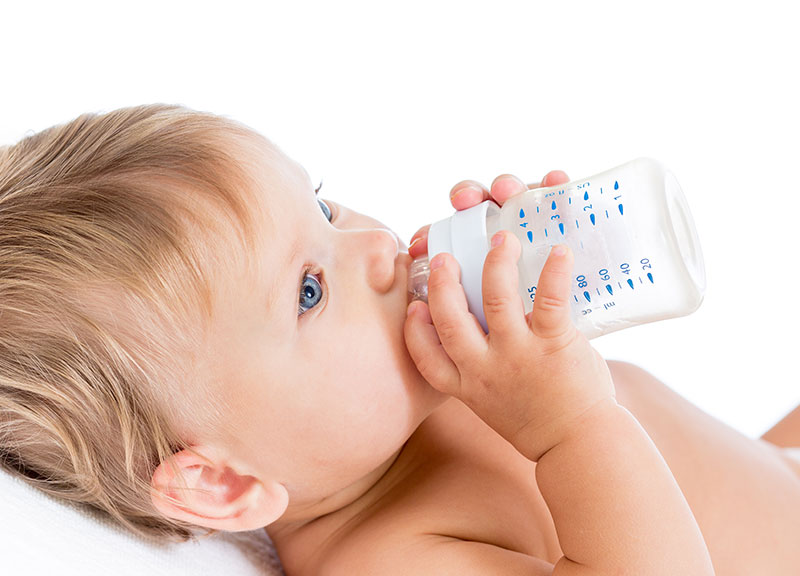
Learn How To Prevent Baby Bottle Tooth Decay
What is bottle decay?
Cavities found on the upper, front teeth in small children are commonly known as bottle decay, nursing caries, early childhood caries or baby bottle mouth. The cavities are localized to the upper front teeth because when a baby drinks from a bottle or nipple, their tongue covers the lower teeth, protecting them. These cavities often develop before the molars erupt.
How do babies get cavities?
Like adult cavities, bottle decay is caused by a combination of bacteria + carbohydrates + susceptible tooth surfaces. When we ingest carbohydrates, such as the natural sugars found in milk, they can be used by cavity-causing bacteria to grow. This bacteria then creates plaque, which is acidic. When this acid is allowed to sit on the teeth undisturbed, it starts to break down the protective enamel layer. When this reaction often happens, such as with a nightly bottle before sleep, the enamel decays and a cavity develops. Our mouths do have some self-cleaning tricks, such as producing watery saliva, however, when we fall asleep, this saliva production slows down and if proper brushing is not done, the acidic plaque is allowed to sit on the teeth for a long period.

How can I prevent decay in my children’s teeth?
Children should always go to bed with a clean mouth. This starts with wiping the teeth and gums with a wet cloth after nursing or bottles. Once the molars erupt, a soft toothbrush should be used at least twice a day to remove plaque.
The current guidelines from The American Academy of Pediatric Dentistry note that fluoride toothpaste can start being used as soon as teeth erupt. For children under the age of 3, it is recommended to use a small “smear” amount of toothpaste, with adult assistance. Fluoride is the only substance that can help “heal” acid damage, otherwise called “demineralization.”
When parents are brushing children’s teeth they should lift the upper lip to ensure the toothbrush is removing all of the plaque, especially along the gum line where it tends to collect.
Children should only have water in bed with them as it does not contain carbohydrates. Night nursing, especially on-demand nursing should be reduced as early as possible to minimize cavity risk. Breast milk on its own has not been proven to cause cavities. However, if there is plaque is present on the teeth, and then breast milk is allowed to sit on the tooth surface as well, this can cause cavities over time. Increased frequency of feedings also increases the risk of cavities.
Children can start to develop cavities as soon as their teeth erupt; this is why every child should be assessed by a dentist within six months of their first tooth erupting. Dental professionals may be able to diagnose early signs of cavities and provide solutions to reduce the risk or slow the progression. Contact us if you have any questions, or would like to schedule a consultation or dental visit.
